1. Vision
1.1. CONCEPTUALIZE
1.1.1. Course Features
1.1.1.1. Pedagogical approaches
1.1.1.1.1. inquiry-based
1.1.1.1.2. problem-based
1.1.1.1.3. case-based
1.1.1.1.4. dialogic
1.1.1.1.5. collaborative
1.1.1.1.6. situative
1.1.1.1.7. constructivist
1.1.1.1.8. didactic
1.1.1.1.9. vicarious
1.1.1.1.10. authentic
1.1.1.2. Principles
1.1.1.2.1. theory based
1.1.1.2.2. practice based
1.1.1.2.3. cultural
1.1.1.2.4. aesthetics
1.1.1.2.5. political
1.1.1.2.6. professional
1.1.1.2.7. international
1.1.1.2.8. sustainable
1.1.1.2.9. community-based
1.1.1.2.10. serendipitous
1.1.1.3. Guidance and Support
1.1.1.3.1. learning pathway
1.1.1.3.2. mentoring
1.1.1.3.3. peer support
1.1.1.3.4. scaffolded
1.1.1.3.5. step-by-step
1.1.1.3.6. study skills
1.1.1.3.7. library support
1.1.1.3.8. tutor directed
1.1.1.3.9. remedial support
1.1.1.3.10. help desk
1.1.1.4. Content and Activities
1.1.1.4.1. brainstorming
1.1.1.4.2. concept mapping
1.1.1.4.3. annotation
1.1.1.4.4. assimilative
1.1.1.4.5. jigsaw
1.1.1.4.6. modelling
1.1.1.4.7. aggregating resources
1.1.1.4.8. pyramid
1.1.1.4.9. learner generated content
1.1.1.4.10. information handling
1.1.1.5. Reflection and Demonstration
1.1.1.5.1. diagnostic
1.1.1.5.2. e-assessment
1.1.1.5.3. e-portfolio
1.1.1.5.4. formative
1.1.1.5.5. summative
1.1.1.5.6. feed forward
1.1.1.5.7. reflective
1.1.1.5.8. peer feedback
1.1.1.5.9. vicarious
1.1.1.5.10. presentation
1.1.1.6. Communication and Collaboration
1.1.1.6.1. structured debate
1.1.1.6.2. flash debate
1.1.1.6.3. group project
1.1.1.6.4. group aggregation
1.1.1.6.5. group presentation
1.1.1.6.6. peer critique
1.1.1.6.7. pair debate
1.1.1.6.8. for/against debate
1.1.1.6.9. questions & answers
1.1.2. Personas
2. Activities
2.1. CREATE
2.1.1. Resource Audit
2.1.2. Learners generate content
2.2. COMMUNICATE
2.2.1. Affordances
2.2.2. E-moderating
2.3. COLLABORATE
2.3.1. Affordances
2.3.2. CSCL Pedagogical Patterns
2.4. CONSIDER
2.4.1. Learning Outcomes ---> Assessments
2.4.2. Assessment of Pedagogical Patterns
2.4.3. Activities that foster reflection
2.4.4. Designing assessment activities
2.4.4.1. formative
2.4.4.2. summative
2.4.4.2.1. diagnostic
2.4.4.3. peer assessment
3. Synthesis
3.1. COMBINE
3.1.1. Course View
3.1.1.1. holistic overview
3.1.2. Activity profile
3.1.2.1. the amount of time the Ls spend on different activities
3.1.3. Storyboard
3.1.3.1. temporal sequence of activities
3.1.4. Learning Pathway
3.1.4.1. temporal sequence of learning designs
4. Implementation
4.1. CONSOLIDATE
4.1.1. Implementation
4.1.1.1. through the classroom or digital tool
4.1.2. Evaluation
4.1.2.1. of the effectiveness of the design
4.1.3. Refinement
4.1.4. Sharing
4.1.4.1. based on evaluation
4.1.4.2. with peers
4.1.4.3. via specialized sites
4.1.4.4. via social media
